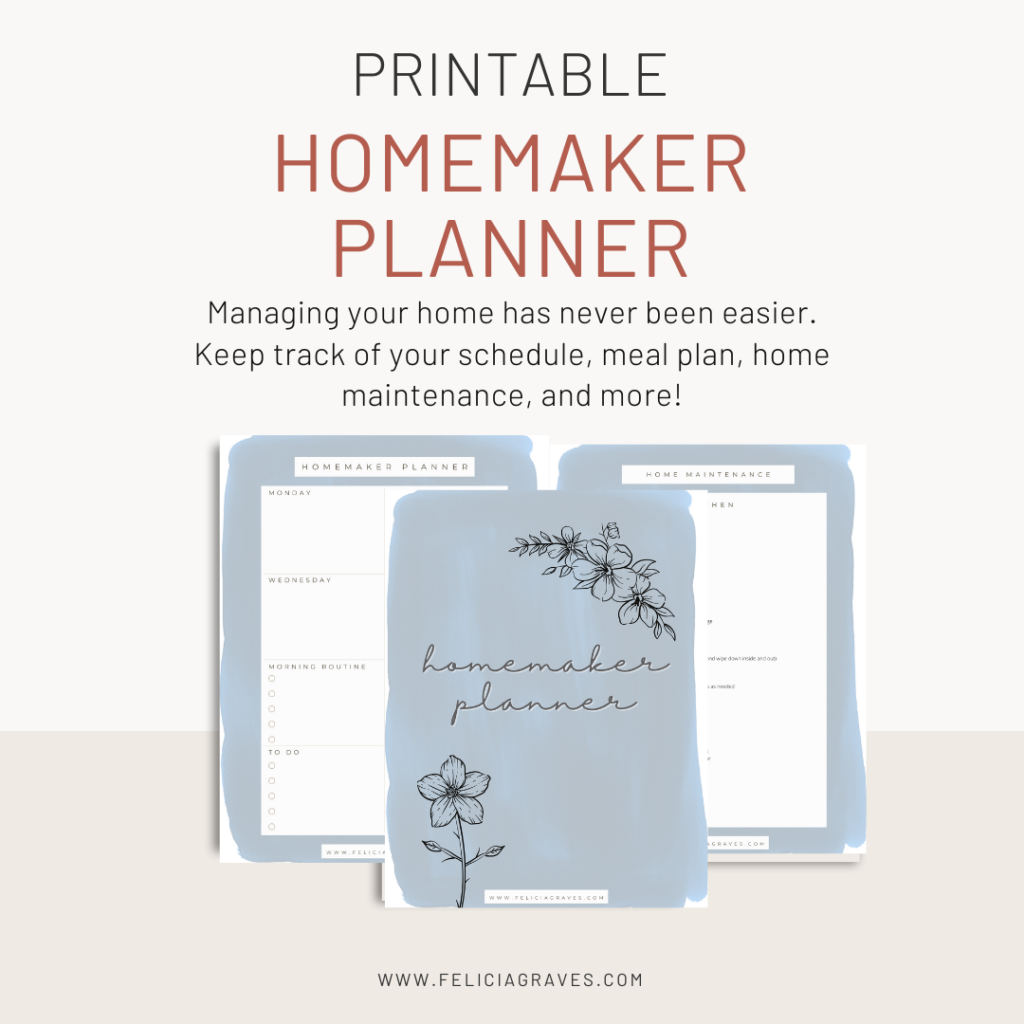Tackling a messy house can feel overwhelming. I am going to walk you step by step on the best way to clean your filthy house. You can absolutely have a clean house without losing your mind in the process.
I have broken everything down for you into eight steps. This will keep you focused and on track to complete your goal of having a clean house. Getting the house clean is only half the battle. We don’t just want to clean it we want to clean it in the most efficient way possible. Why? Because your time is valuable and I’m sure you have better things to do than scrub toilets.
Be sure to download my free printable guide that breaks down everything you need to do for each room in your home. I created this guide in a way that will not only help you to clean your home today but also keep it

How do you clean a neglected house?
The first thing that I want you to know is that you are not the first, or the last, person to look around their home and feel like things have gotten way out of control. My family has just overcome what feels like an all out war with some very rude strain of bacteria. As we are starting to rejoin the land of the living everyone is looking around our messy home and trying to find a white flag to wave in surrender.
Times like these I swear I can feel my grandmother’s disapproving gaze piercing straight down from heaven. I am telling you she would not be impressed.
When cleaning the entire house is a daunting task the important thing to remember is that you do not need to tackle everything at once. We are going to take this a little bit at a time focusing only on completing small items. Before you know it you will have a tidy home!
Discloser Note:
This post may contain affiliate links, which means I make a small commission at no extra cost to you. See my full disclosure here.
Step One: Grab your cleaning supplies
The first step we are going to take is to gather together our cleaning products.
A majority of the things in your home can be cleaned by mixing together a solution of white vinegar and hot water into a spray bottle. Combine that with a paper towel or damp microfiber cloth and there will not be much that stands in the way between you and a clean home.
Keeping that in mind I do not want you to spend a lot of time worrying over having every single item on this list or going a long way out of your way to get everything. The vinegar mixture, some soapy water, and a little hard work will turn a dirty house into a whole house of clean spaces. Also, searching out the perfect list of supplies with the perfect game plan could possibly be a way to procrastinate. So do not let yourself get hung up here.
Cleaning tools
- This printable checklist
- Cleaning Caddy (I find this helpful as I move room to room but any caddy or bin you have will do the job)
- Microfiber Rags (I like that I can use bleach on these without compromising the color or durability of the rag)
- Paper Towels or Cut up an old towel are a great alternative to the microfiber rags
- Scrubbing brush or even an old toothbrush
- Vacuum Cleaner (I love this one because hair does not get caught on it and it converts to a handheld vacuum)
- Spin Mop
- Glass Cleaner
- Toilet Bowl Cleaner
- Trash bag / Garbage Bag
- Swifter Duster or Feather Duster
- Dishsoap
- Laundry soap (I use powdered tide for both dirty laundry, hard surfaces, and even to clean floors)
As you get back into a routine of cleaning your house on a regular basis rather than doing a deep cleaning or spring cleaning you will be more accustomed to what cleaning supplies you most prefer to have on hand. If it has been a long time since you thought about regular home maintenance you might also want to check out my posts on a daily cleaning routine and weekly cleaning routine.
How long does it take to clean a filthy house?
What is the fastest way to clean a trashed house? This depends primarily on the size of the house and the size of the mess. But do not worry over how much time this project will take. The fastest way starts when you start.
I am going to break this down into simple tasks that you can work on one at a time. If you are facing a disgusting mess that you truly do find overwhelming it is a good idea to enlist a family member. Make this a team effort because chances are they helped to make the mess in the first place.
My goal is to not only help you clean your house but to do so in the most efficient manner possible. By making sure that we are being efficient with our time and resources it will help you to get the job done in the least amount of time possible. So while I cannot give you an exact amount of time it will take I can assure you that by following these steps you will be making the most of your time.
I suggest that you read through this entire post once before getting started, download the free cleaning guide, and then pull the post up again to follow along as you are cleaning. This will help you to know what is coming up next and to see the bigger picture. All of those things lead to a cleaner house in the least amount of time.

Step Two: Remove all the trash
Get that trash bag and work your way through all of the common areas picking up the trash.
Please do not let yourself get sidetracked here by starting a load of laundry or switching to the dirty dishes. The first time you make a sweep through your living space ONLY focus on picking up all of the trash.
Remember that we are breaking this down into simple steps. You will have a clean room at the end of this but the most efficient way to clean a filthy house is to not jump around from task to task. Work on one task until you have completed it and only then should you move on to the next step.
Step Three: Pick up dirty clothes
The piles of laundry lingering around are only going to be in your way. Grab your laundry basket and go throughout your entire home picking up all of the dirty clothes.
You may feel that now is a good time to put a load into the washing machine but you are probably going to be better off for leaving everything in the laundry room. Again, we are not wanting to get side tracked here.
Finishing up steps two and three should not take an enormous amount of time. The idea is to just work quickly moving through your house first picking up all the trash and then picking up all the laundry.
Step Four: Gather dishes
Similar to last time you should be able to work quickly at this task. Gather up all of the dirty dishes and put them in the kitchen sink.
Remember, you are not going to stop and clean dishes. The object here is only to focus on putting the dishes where they belong instead of having them scattered all over the house.
Clean your house one room at a time
Until now all of the tasks that you have been working on had you working on the entire home. This was a good way to clean up much clutter. From here on out we are going to focus on one room at a time.
To have a free printable version of this cleaning guide sent to your email click here.
Step Five: Clear the flat surfaces
I recommend that you start in the living room or a bedroom. Begin by focusing your attention on all of the flat surfaces in the room. This will be tables, desks, tops of dressers, nightstands, and so on.
Tidy up any and all clutter from the flat surfaces in the room. This means taking things off of the surfaces and relocating them to where they belong. For instance, take the hairbrush off of your nightstand and go put it in the bathroom. Another example would be taking loose mail and putting it on your desk.
Finish step five by tackling the largest flat surface of all. The floor. You should have already taken care of any clothes that were left on the floor in step three. Now is the time to pick up anything else that might be lingering on the floor and put it back in its rightful place. Shoes go in the closet, hang up any clean clothes, and put the pile of books back on the bookshelf.
Once you have cleared off the flat surfaces in this one room you will continue working in this room until the entire room is clean. It can be overwhelming to think about cleaning the entire disgusting house but right now you only need to focus on this one single room.
Breaking down a big project into smaller more manageable tasks will help you to stay on track and finish the job. Another great way to combat any overwhelm you might be feeling is by using a timer. Set a timer for fifteen minutes and work fast and hard for those fifteen minutes. Make it a race against yourself to see how many things you can get done in one room before the timer goes off. Then take a five or ten minute break and start again.
Step Six: Work from top to bottom
Now that you have all of the “things” put away and taken care of you are left with the dirt and dust mites. Start at the top of the room and work towards the bottom to get everything clean. This is when you will wipe down and scrub. If there is a lot of dust you can use the hose attachment on your vacuum cleaner before wiping. Doing this means you are actually removing the dirt and dust instead of just moving it around.
Working from top to bottom is the most efficient way to clean. As you clean you will send so much dust floating down to the areas below where you are working. I was reminded of this earlier this past year when I forgot and cleaned my ceiling fans after putting clean sheets on the bed. You can imagine how aggravated I was with myself after that one.
Remember that if you do not have all of the fancy cleaning supplies that we discussed earlier you can still get a lot done with vinegar and warm water. Vinegar is a powerhouse cleaner. It disinfects, can clean stains, and even deodorizes. And it can be used on everything from the kitchen floor, too light fixtures, too small appliances. If you do not love the smell of vinegar you may want to open windows while you are working. Luckily, the smell does not last long.
Step Seven: Floors are last
The last thing you should do in a room is to vacuum carpets. Use your vacuum cleaner and depending on the type of flooring you have in the room you will use your spin mop as well.
Be sure to really take your time with this last step. When you are cleaning up a giant mess there is a good chance that all kinds of debris are now on the floor, especially if you have carpet, and you want to be sure that you are getting all of that gunk out of your house.
Step Eight: Kitchens and Bathrooms
After you have tackled the living room and bedrooms you will work on having a clean kitchen and bathroom. You are still going to follow the same steps when you are cleaning these rooms as you did before. But keep in mind that there will be more scrubbing and wiping.
Everyone has a different tolerance for what kind of chemicals they use in their homes but for me when it comes to bathrooms I always pull out the bleach. I drive my husband a bit crazy because I have myself convinced that a bathroom is not clean unless it smells super strongly of bleach. This is not me telling you that bleach is the only way. I am just sharing a little bit of my crazy. You do what you feel best about. As for me, especially when it is time to clean toilets, I will be grabbing the bleach. Like all of it.
You can still tackle all the bathroom germs if you are just using vinegar. Prescribing to my level of crazy is not required in order to have a clean bathroom. According to this article, “Bleach will kill 99.9% of germs that is comes into contact with, within five or ten minutes of contact. In contrast, the germs that vinegar does kill often need half an hour of contact to be affected.” So you can absolutely get the job done with vinegar. Just keep in mind that you need to give it time to get the job done.

Just call yourself a professional cleaner
You did it! Okay so now what.
First, take a seat and take a deep breath. You have earned it. Prop your feet up on the ottoman that recently held old food and some plastic bags. Gaze out of your nice clean windows and enjoy the fruits of your labor.
Alright that is nice but we aren’t really done yet. I mean you knew that though. As long as these people we love so dearly keep living in the house (ourselves included) there will be more cleaning to do. That is why it is important to have a plan in place going forward so that you do not blink and find yourself right back in the same position your were when we got started. Never again do you want to be googling, “how to clean a filthy house”, so let’s give you some tools to avoid a filthy house round two.
Establish a daily cleaning routine
I have a four step daily cleaning routine that is too easy to hate.
By doing these four things every day you will be able to manage your housekeeping very efficiently. I promise that if you commit to following this cleaning routine for two weeks that you will see a remarkable difference in tidiness of your home.
I think it is safe to say that the last thing you want to think about after cleaning a filthy house is more cleaning. But I can guarantee you that following a daily cleaning routine does not take nearly as much time or effort as it does to clean your whole house from top to bottom.
Establish a weekly cleaning routine
There are some cleaning tasks that need to happen frequently but not every single day. Those are things that I include in my weekly cleaning routine.
For example, you do not need to mop the floor every day but you do need to keep up with it fairly regularly. The same thing can be said about cleaning the shower. These cleaning tasks are where the weekly cleaning routine comes into play.
We do not want you to end up back at square one. That is why I want to teach you the magical powers of daily and weekly cleaning routines.
Your free cleaning guide
I have created a cleaning guide that is free for you to download. In this guide I list every room in the house and what cleaning tasks need to be done. Task are broken down daily, weekly, and monthly basis. This free download will help you to stay on track of your housekeeping.
While I have not tried every system created for keeping my home clean I have tried so very many. Out of everything that I have tried in my home this system of a daily, weekly, and monthly cleaning routine has been the best by far. Because you customize it to the needs of your personal space it almost cannot fail. I say almost because let’s be honest sometimes I get lazy or my entire house comes down with some pesky illness.
Definitely take advantage of the free cleaning guide. And if customizing routines for your own home sounds difficult then fear not. I also have a free guide to help with that too.
Thank you for trusting me to help you clean your home. I am proud of you for all the hard work you’ve put in!



Wow, this is extensive! Great information! Thank you so much — as a mother of 5 this kind of direction can be really helpful to keep it less overwhelming.
This is a great list for cleaning days! I love being able to separate tasks in my mind.
Okay whoa, thank you for this! I often feel overwhelmed with all of the tasks and repetition it takes to keep a home clean. This makes it so much more simple and fun!
These are SUCH helpful tips!! I know I’ve been in this position many times and it’s nice to have a process to get back on track
These are great tips to avoid being overwhelmed and make the whole cleaning process easier, especially by using the approach of daily and weekly cleaning routines. Thank you for sharing.
This is such a great breakdown of steps to easily get things done! I know I need to be more proactive about clearing flat surfaces – things build up on them too quickly.
What a terrific and comprehensive post! Thanks for breaking it down into bite-size pieces. It feels more achievable this way and cleaning the house is ALWAYS a source of stress.